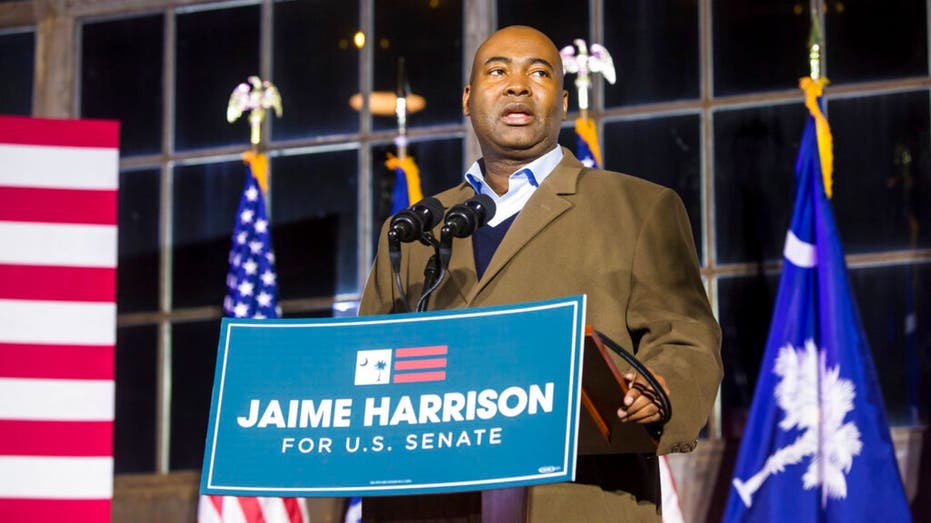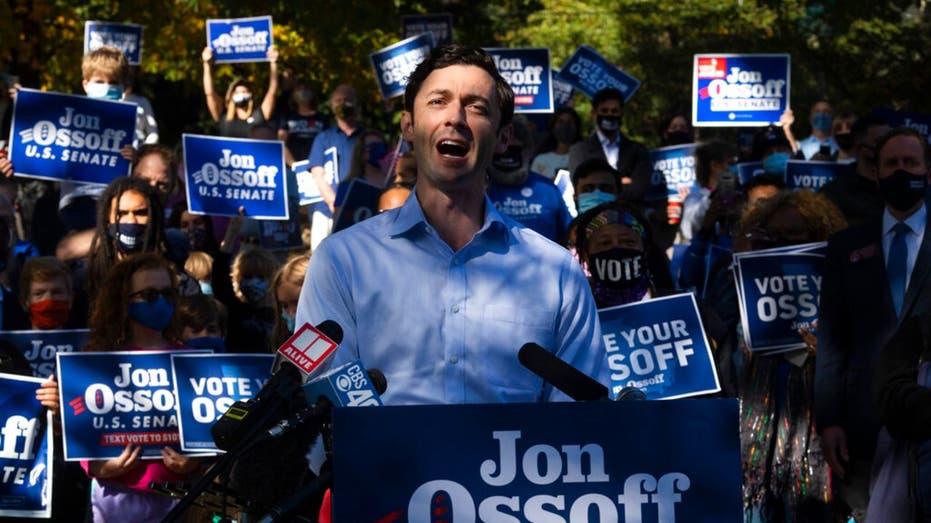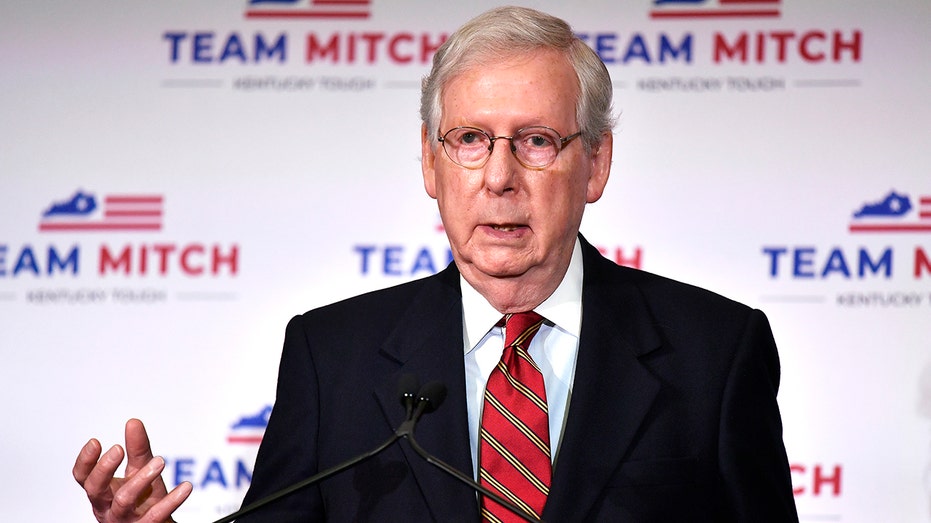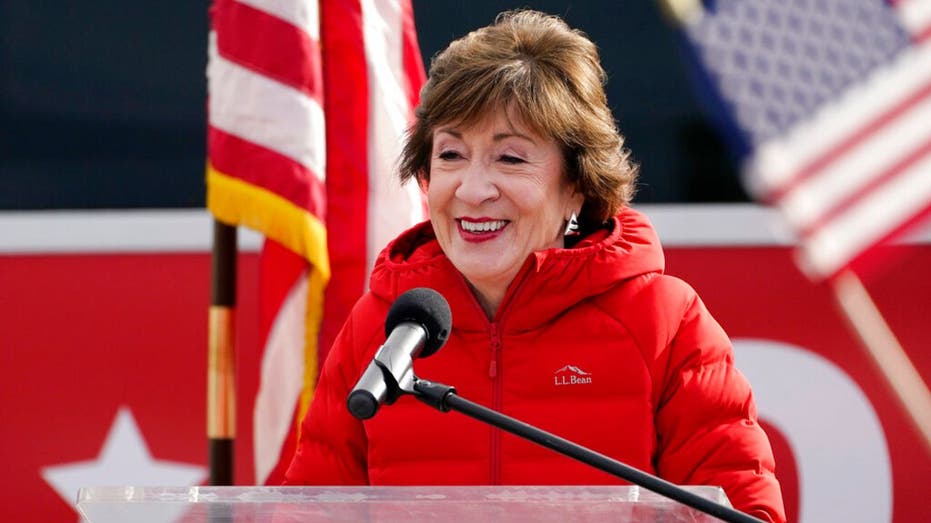For Senate Democrats, campaign money couldn't buy happiness
Democrats who hoped to easily oust GOP Senate majority netted only 1 seat so far
WASHINGTON - South Carolina Democrat Jaime Harrison shattered U.S. Senate campaign fundraising records this year, as he amassed a stunning $109 million war chest for an election drive intended to unseat three-term Republican Senator Lindsey Graham.
That financial firepower failed to deliver when Harrison, like Senate Democratic hopefuls in five other states, met a surge of voter support for Republicans.
For Harrison, 44, it meant a loss by more than 10 percentage points after largely running neck and neck with Graham in pre-election polls. Other Democrats lost in Iowa, Kansas, Maine, Montana and Texas.
“We just got completely slaughtered on Election Day. There truly was a red surge,” said a Democratic operative who worked closely with the Harrison campaign. “Turnout was just incredible, which isn’t necessarily a good thing for us, in red states.”

U.S. Senate candidate Jaime Harrison speaks after conceding the election to incumbent Lindsey Graham. (Jeff Blake/The State via AP)
INVESTORS FEAR TRUMP’S ELECTION FIGHT WILL PROVE STOCK MARKET QUICKSAND
Democrats who had hoped to easily oust the 53-47 Republican Senate majority have instead won a net gain of only one seat so far. They could reach a majority, if they win two Georgia Senate seat runoffs on Jan. 5. Such a result would give them a 50-50 split, if Democrat Joe Biden is declared president and Kamala Harris vice president, allowing her to cast a tie-breaking vote.
Senate Democrats are already calling on supporters to send campaign contributions to Georgia candidate Raphael Warnock.
Republican Senators Kelly Loeffler and David Perdue face challenges from Warnock and Jon Ossoff, respectively. The four candidates have already raised a combined $100 million in campaign donations, according to Federal Election Commission filings. Almost half of that came in during the third quarter.
But money did not prove decisive for Democrats in other hotly contested Senate races, despite a combined Democratic fundraising advantage over $200 million.
Democratic candidates raised a whopping $626 million in 14 highly competitive races, vastly overshadowing Republican collections of $386 million in the same contests, according to FEC filings.

Georgia Democratic candidate for U.S. Senate Jon Ossoff rallies supporters for a run-off against Republican candidate Sen. David Perdue. (AP Photo/John Amis)
COMING UP SHORT
Aside from the surge of Republican voters, strategists and political analysts suspect Democratic spending may have reached the point of diminishing return, while aiding Republican claims that some races were being distorted by outside money.
A Republican strategist involved in several key races said the scale and out-of-state nature of Democratic fundraising through the ActBlue platform also helped Republicans drive home claims that Democratic candidates were in league with national political figures, namely Democratic Senator Chuck Schumer and House Speaker Nancy Pelosi.
In South Carolina, Harrison and Graham raised nearly $180 million between them. The only other race to see more than $100 million in candidate fundraising was Arizona. There Democrat Mark Kelly defeated Republican Senator Martha McSally after out-fundraising her by $90 million to $57 million.
Both Democrats and Republicans say Republican Senate Majority Leader Mitch McConnell’s decision to push through U.S. Supreme Court Justice Amy Coney Barrett’s confirmation ahead of the election energized Republican support for incumbents like Graham, 65, who chairs the Senate Judiciary Committee.

Senate Majority Leader Mitch McConnell, R-Ky., speaks with reporters during a press conference in Louisville. (AP Photo/Timothy D. Easley)
ARIZONA VOTERS APPROVE SUBSTANTIAL TAX HIKE ON STATE’S RICHEST RESIDENTS
The biggest winner in Tuesday’s Senate election was Maine Republican Susan Collins, 67, an independent-minded moderate who voted against Barrett and campaigned on local issues, including her role as co-author of a federal program to aid small businesses reeling from the coronavirus pandemic. She won despite Biden capturing the state from President Donald Trump.
Collins raised $24.2 million for an election that many had expected her to lose against Democrat Sara Gideon, the speaker of the Maine House of Representatives. Gideon raised nearly $70 million but lost by almost 9 points after leading Collins in opinion polls since July.
“The decisive victory for Senator Collins proved that the state of Maine is not for sale,” said Collins campaign spokeswoman Annie Clark.
A Gideon campaign spokeswoman was not available for comment.

Republican Sen. Susan Collins, R-Maine, speaks after Democrat challenger Sara Gideon called her to concede Tuesday's election. (AP Photo/Robert F. Bukaty)
GET FOX BUSINESS ON THE GO BY CLICKING HERE
Republicans also claim Democrats may have become too fixated on trying to oust prominent Republicans such as McConnell and Graham in red states that were unlikely to flip blue.
“They spent huge amounts of money in Kentucky, South Carolina, Kansas, Alaska, Texas, and came up short in every single one,” said the Republican strategist.
“Meanwhile, they didn’t win Maine. It looks like they’re not on track to win North Carolina. Those were key states for their coalition to making it to their majority. These other peripheral states were kind of gravy.”




















